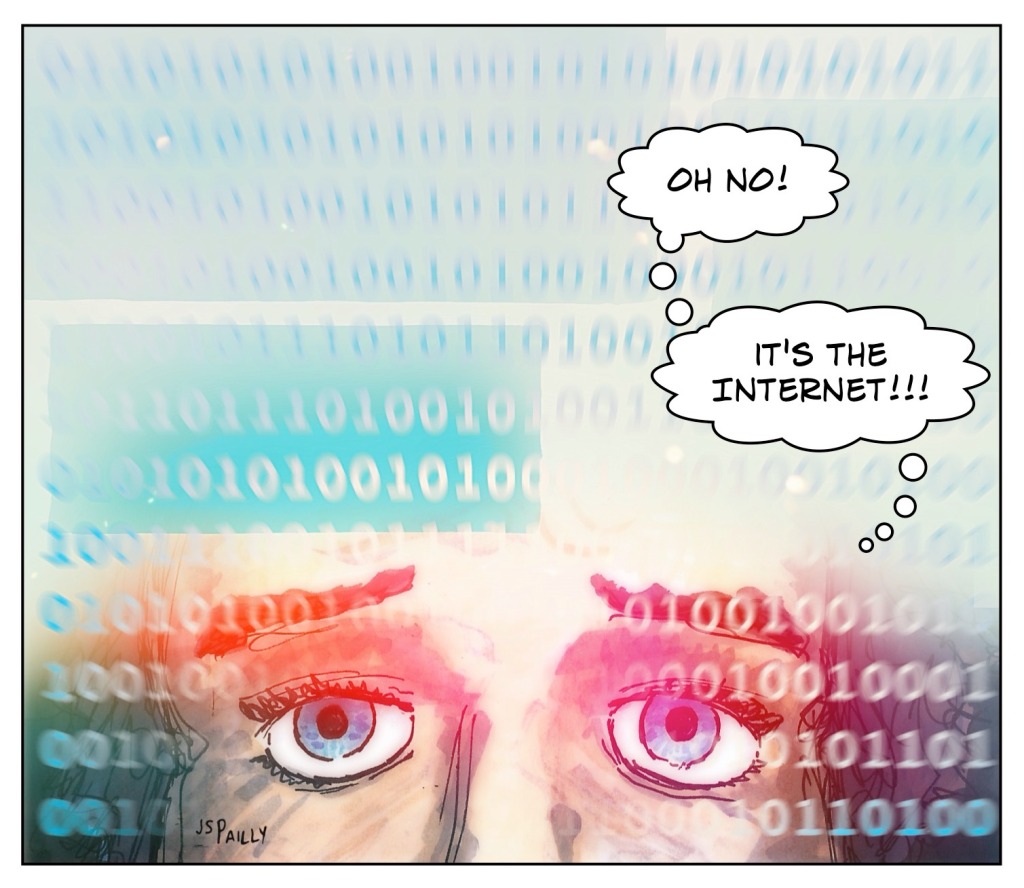Sciency Words: (proper noun) a special series here on Planet Pailly focusing on the definitions and etymologies of science or science-related terms. Today’s Sciency Word is:
ARTIFICIAL INTELLIGENCE
In 1955, American cognitive scientists John McCarthy and Marvin Minsky sent out an extraordinary proposal:
We propose that a 2 month, 10 man study of artificial intelligence be carried out during the summer of 1956 at Dartmouth College in Hanover, New Hampshire. The study is to proceed on the basis of the conjecture that every aspect of learning or any other feature of intelligence can in principle be so precisely described that a machine can be made to simulate it.
McCarthy and Minsky go on to write that that machines can be made to learn, solve problems for themselves, and “improve themselves.” They also claim that “significant advancement” can be made toward these goals if a group of experts were to “work on it together for a summer.”
Ah, such optimism!
That 1955 proposal is the first documented usage of the term “artificial intelligence.” Apparently McCarthy initially wanted to use the term “automata studies,” but even among scientists and engineers, “automata studies” didn’t sound sexy enough. So McCarthy coined the term “artificial intelligence” and ran with that instead.
According to this article from the Science History Institute: “The name implied that human consciousness could be defined and replicated in a computer program […].” Whether of not that’s true—whether or not computers really can reproduce human-style consciousness—is a topic of ongoing debate. Regardless, McCarthy’s new term got the attention he wanted, and the 1956 conference at Dartmouth was a success.
However, it turns out it would take more than “a summer” to trigger the robot apocalypse. Still, the 1956 Dartmouth Conference started something important, and today, we are living with the consequences!

The term “artificial intelligence” seemed carefully calibrated to signal that the goal was to produce something like a thinking system, but with the qualifier “artificial” avoiding any implications of a machine with a soul. For 1950s sensibilities, it was probably good politics.
The AI term is now inescapably embedded in our discourse. But myself, I prefer “machine intelligence” or “engineered intelligence”, terms that convey that the intelligence would be a real one, albeit with an engineered rather than evolved pedigree.
LikeLiked by 2 people
I like “machine intelligence” too. It sounds much more sinister than AI 😉
LikeLiked by 2 people
I like those terms as well. I think “engineered intelligence” really drives home the point that it’s something that was designed deliberately.
LikeLiked by 1 person
I once attended talk by a doctor of AI. His current job involves using algorithms and AI to create solutions to problems. Just for simulation and practise purposes, he and a team constructed an AI to optimise an energy companies’ sales because they weren’t competing very well. And guess what happened?
The AI reduced prices hugely, which brought the rest of the competing companies to bankruptcy because they lost all their customers, and then raised the prices to unbelievably high levels, which cut off energy to the majority of people. How awful that would be if implemented into real life!
LikeLiked by 2 people
But what would have happened if all the competing companies had used an AI to price their energy? They would have presumably arrived at an optimum price point that balanced the needs of their customers with the desire of the companies to make a profit.
LikeLiked by 2 people
He talked a bit about rivalry between AI, however not with the energy company example. He set up a game with a few AI and humans. The humans were totally wiped out, but some of the AI would keep playing for ages. I guess it depends on how each AI is built, as maybe one is slightly more advantaged from the start. I would expect two identical ones to be at stalemate, but then again, I’m no expert!
LikeLiked by 2 people
That’s kind of scary, but of course the A.I. was only doing what it was programmed to do. But perhaps if anti-trust laws were included in that program, the A.I. would have worked out a different solution.
LikeLiked by 1 person
Ouuu so interesting to read! I was wondering if you could checkout my new piece on ARTIFICIAL INTELLIGENCE & JOBS OF THE PAST!And I would really appreciate it if you could comment some feedback to improve the writing style. Looking forward to hearing from you. – Kiran
https://kiranninprogress.wordpress.com/2019/12/04/artificial-intelligence-jobs-of-the-past/
LikeLiked by 1 person
I like your blog. You’re doing some thoughtful and provocative stuff. Keep it up!
LikeLiked by 1 person